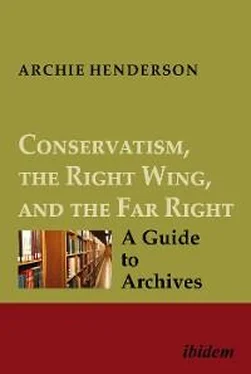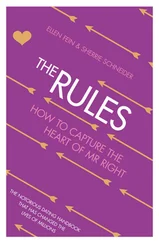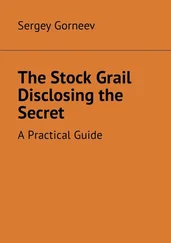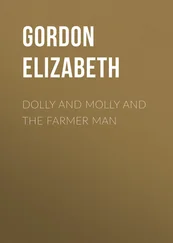Description: Files on Governor Ross Barnett; Citizens Councils of Louisiana; civil rights; Communist Party (U.S.); desegregation; discrimination; Highlander Folk School; integration; Ku Klux Klan; Lester Maddox; James Meredith; Mississippi File—"Ole Miss" integration; Benjamin Muse; poll tax legislation; poll tax; Racial violence; United States v. Association of Citizens Councils of Louisiana; and Governor George Wallace.
Finding aid:
http://cisupa.proquest.com/ksc_assets/catalog/1350_CivilRtsJFKAdminPt2.pdf
[0575] Civil Rights During the Kennedy Administration, 1961-1963. Part 3: The Civil Rights Files of Lee C. White. A collection from the holdings of The John F. Kennedy Library, Boston, Massachusetts (Bethesda, MD, A UPA Collection from LexisNexis, 2007) [microfilm]
Description: The documents in this microfilm collection were filmed from the Papers of John F. Kennedy, Presidential Papers, White House Staff Files: Lee C. White, at the John F. Kennedy Presidential Library, Boston, Massachusetts. Subjects include Anti-Poll Tax Amendments; Anticommunism; Christian Crusade; civil rights; Communism and communist parties; Barry Goldwater; John Birch Society; poll tax; racial discrimination; segregation; and states' rights.
Finding aid:
http://cisupa.proquest.com/ksc_assets/catalog/101773.pdf
[0576] Civil Rights Greensboro [digital collection]
Location: Martha Blakeney Hodges Special Collections and University Archives, The University of North Carolina at Greensboro, University Libraries, 222B Jackson Library, P.O. Box 26170, Greensboro, NC 27402
Description: Civil Rights Greensboro provides access to archival resources documenting the modern civil rights era in Greensboro, North Carolina, from the 1940s to the early 1980s. Historical materials include correspondence, reports, speeches, photographs, newspaper clippings, and oral histories held at five cultural heritage institutions in North Carolina. Clippings and other materials on the Greensboro Massacre, 1979; American Nazi Party; Harold A. Covington; Ku Klux Klan; and segregation.
Finding aids:
http://libcdm1.uncg.edu/cdm/landingpage/collection/CivilRights
http://libcdm1.uncg.edu/cdm/search/collection/CivilRights
http://libcdm1.uncg.edu/cdm/ref/collection/CivilRights/id/2024
[0577] Civil Rights in Mississippi Digital Archive [digital collection]
Location: The University of Southern Mississippi, 118 College Drive, Hattiesburg, MS 39406-5053
Description: The Civil Rights in Mississippi Digital Archive includes a selection of digitized photographs, letters, diaries, oral history transcripts, finding aids for manuscript collections, and other documents. Among the 2233 items are the following: a list of the Mississippi State Sovereignty Commission Schedule of payments to the White Citizens Council forum between the years 1960 and 1965; a press release from the Student Nonviolent Coordinating Committee, May 26, 1964, identifying organizations involved in statewide opposition to civil rights workers and the Freedom Summer 1964 project, including the Association of Tenth Amendment Conservatives (ATAC), based in Cleveland, Mississippi; the White Citizens councils; the Association for the Preservation of the White Race (APWR); and the Ku Klux Klan; a letter from William J. Simmons to Erle Johnston, Jr., November 18, 1987; photographs of Thomas P. Brady and William J. Simmons; and the following pamphlets: A Review of Black Monday, by Judge Tom P. Brady, October 28, 1954, which stresses the need for segregation among the races to protect the United States from decline as a civilization; A Christian view on segregation, by Rev. G. T. Gillespie, November 4, 1954, in which Gillespie states that racial separation is the way to support racial harmony. He says that Soviet Communists are behind the Civil Rights movement, because they want to break down the barriers between races so that racial amalgamation will occur. He contends that school integration will lead to intermarriage, and he cites Biblical and pseudoscientific reasons that segregation must continue. He also quotes Thomas Jefferson, Abraham Lincoln and Booker T. Washington; Conflicting views on segregation (circa 1955), a pamphlet containing a series of letters from Dr. Dotson McGinnis Nelson, President of Mississippi College, who believes in the segregation of the white and Negro races, and from Tom, an alumnus of the College, who believes in the contrary views; Ugly truth about the NAACP, an address by Attorney General Eugene Cook of Georgia before the 55th Annual Convention of the Peace Officers Association of Georgia, printed by the Citizens' Council, circa 1955, in which Cook alleges that the people who direct and subsidize the National Association for the Advancement of Colored People (NAACP) have records of affinity for, affiliation with, and participation in Communist, Communist-front subversive organizations, activities, and causes; "We've reached era of judicial tyranny," an address by James O. Eastland, December 1, 1955, in which Eastland defends states' rights and segregation in schools, proclaims the integration efforts of such organizations as the National Association for the Advancement of Colored People, the National Council of Churches of Christ, and the Rockefeller Foundation are Communist-inspired organizations, which use the national media to foster their views; Interposition: The Barrier Against Tyranny, Speech of Representative John Bell Williams, January 25, 1956, in which Williams maintains the states have the right to declare a decision of the federal government, such as the 1954 Brown v. Board of Education of Topeka decision, as illegal, invalid, and of no force and effect; Mixed schools and mixed blood, by Herbert Ravenel Sass (1956); Segregation and the South, Address by Judge Tom P. Brady, October 4, 1957, which presents the southern rationale for segregation, and describes African Americans as having an inherent deficiency in mental ability, and a natural indolence; Mid-west hears the South's story: An address by William J. Simmons, February 3, 1958, in which Simmons discusses segregation in the South, compares it to segregation in the Mid-west and in the North, argues segregation is a constitutionally protected right, and maintains the National Association for the Advancement of Colored People and the Urban League are Communist-dominated organizations; South's Just Cause, by W. M. Caskey, April 22, 1961, which presents a defense of States' Rights, and argues the states have a legal right to continue the segregationist way of life; Race relations and civil rights: a southern point of view, an address by William J. Simmons, February 28, 1963, which stresses segregation is a successful system, because it is based on the realization that the races get along best when they are not forced to mingle socially; and A Jewish view on segregation, circa 1950-1960s [online at http://digilib.usm.edu/cdm/compoundobject/collection/manu/id/1948]. [Harry P. Gamble, Sr.], Segregation of the White Race must Be Preserved (New Orleans, La., Society for the Preservation of State Government and Racial Integrity, June 1955) [online at http://digilib.usm.edu/cdm/compoundobject/collection/manu/id/1785/rec/1].
Finding aid:
http://digilib.usm.edu/crmda.php
[0578] Civil Rights miscellaneous collection, 1937-1969 and undated, MSS. 500
Location: Manuscripts Division, Special Collections, Mississippi State University Library, 395 Hardy Rd, P.O. Box 5408, Mississippi State, MS 39762-5408
Description: Broadsides, leaflets, circulars, publications, comics, and other materials documenting Anti-Communism, anti-Semitism, anti-left-wing activities, segregationism, and the American Eugenics Party in the United States.
Websites with information:
http://library.msstate.edu/specialcollections/manuscripts/fulllist.php
http://www.lib.msstate.edu/specialcollections/collections/manuscripts/civilrights/
Читать дальше












